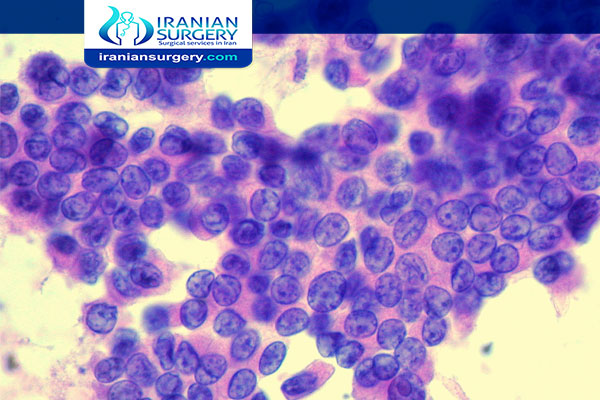Papillary Thyroid Cancer (PTC)
Is papillary thyroid carcinoma dangerous?
What is the survival rate for papillary thyroid cancer?
Can you die from papillary thyroid cancer?
Does papillary thyroid cancer spread?
What happens if thyroid cancer is left untreated?
Papillary Thyroid Cancer (PTC)
Papillary thyroid cancer is the most common type of thyroid cancer. Papillary thyroid cancer can be very mild and easy to cure, or it can be quite difficult. Papillary thyroid cancer can occur at any age, and its incidence has been increasing over the last few decades. It is now ranked as the 8th most common cancer in women in the United States, and the most common cancer in women under the age of 25 years. Being diagnosed with papillary thyroid cancer can be very scary at first, however papillary thyroid cancers are most often slow growing tumors, and most can be removed surgically. Although slow-growing, papillary thyroid cancer can sometimes spread to the lymph nodes in the neck. Unlike some other tumors, positive lymph nodes do not usually worsen the generally excellent prognosis for. The involved lymph nodes can be surgically removed along with the thyroid. Most people diagnosed with PTC will not die from it.
Read more about: Anal Fissure Surgery
Read more about: Common side effects of thyroid cancer treatment:
Read more about: Thyroidectomy scar
Is papillary thyroid carcinoma dangerous?
If you have thyroid cancer, the doctor will want to find out how far it has spread. This is called staging. You may have heard other people say that their cancer was “stage 1” or “stage 2.” Your doctor will want to find out the stage of your cancer to help decide what type of treatment is best for you.
The stage describes the spread of the cancer through the thyroid gland. It also tells if the cancer has spread to other organs of your body that are close by or far away.
Your cancer can be stage 1, 2, 3, or 4. The lower the number, the less the cancer has spread. A higher number, like stage 4, means a more serious cancer that has spread outside of the thyroid gland. Be sure to ask the doctor about the cancer stage and what it means for you.
Read more about: Parathyroidectomy
Read more about: Thyroid cancer treatment
What is the survival rate for papillary thyroid cancer?
Papillary thyroid carcinoma is the most common thyroid cancer. About 80% of all thyroid cancers cases are papillary thyroid cancer. This type of cancer has a high cure rate 10-year survival rates for all patients with papillary thyroid cancer estimated at over 90%. Cervical metastasis (spread to lymph nodes in the neck) are present in 50% of small papillary carcinomas and in more than 75% of the larger papillary thyroid carcinomas.
Read more about: Papillary Thyroid Cancer (PTC)
Read more about: Thyroidectomy Surgery in Iran
Can you die from papillary thyroid cancer?
Unless diagnosed early and found during a thyroidectomy, most cases of anaplastic thyroid cancer lead to a rapid and untimely death. Anaplastic thyroid cancer tends to be found after it has spread, and is one of the most incurable cancers known to mankind. papillary thyroid cancer has a high cure rate 10-year survival rates for all patients with this cancer estimated at over 90%.
Read more about: laryngoscopy thyroid surgery
Read more about: Thyroidectomy complications
Does papillary thyroid cancer spread?
Papillary thyroid cancer is the most common kind of thyroid cancer. It may also be called differentiated thyroid cancer. This kind tends to grow very slowly and is most often in only one lobe of the thyroid gland. Even though they grow slowly, papillary cancers often spread to the lymph nodes in the neck. The 5-year survival was 77.6% in patients with single-organ metastasis and 15.3 % in patients with multi-organ metastases. The average interval between the first and second metastases was 14.7 months. Progression from single- to multi-organ metastases occurred in 76% of patients at 5 years.
What happens if thyroid cancer is left untreated?
Patients who choose not to have their thyroid cancer treated often have feelings of anxiety and isolation, and are at a risk of disengaging from the health care system because they might not feel supported. Your thyroid produces hormones that regulate your heart rate, blood pressure, body temperature and weight. Thyroid cancer might not cause any symptoms at first. But as it grows, it can cause pain and swelling in your neck.
Read more about: Cancer treatment in Iran
Read more about: Thyroidectomy Surgery in Iran


